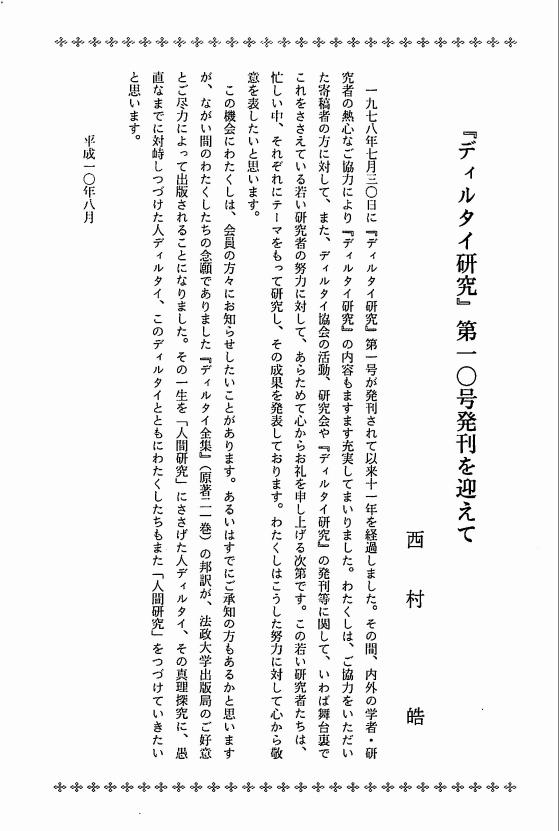1 0 0 0 OA 『ディルタイ研究』第10号発刊を迎えて
- 著者
- 西村 皓
- 出版者
- 日本ディルタイ協会
- 雑誌
- ディルタイ研究 (ISSN:09142983)
- 巻号頁・発行日
- vol.1998, no.10, 1998 (Released:2022-02-28)
1 0 0 0 OA 『ディルタイ研究』創刊に寄せて
- 著者
- 西村 皓
- 出版者
- 日本ディルタイ協会
- 雑誌
- ディルタイ研究 (ISSN:09142983)
- 巻号頁・発行日
- vol.1987, no.1, 1987 (Released:2022-02-28)
1 0 0 0 OA 教育哲学を考える
- 著者
- 西村 皓
- 出版者
- 教育哲学会
- 雑誌
- 教育哲学研究 (ISSN:03873153)
- 巻号頁・発行日
- vol.1991, no.63, pp.107-108, 1991-05-10 (Released:2009-09-04)
1 0 0 0 OA 実存主義的人間観と教育思想
- 著者
- 西村 皓
- 出版者
- 教育哲学会
- 雑誌
- 教育哲学研究 (ISSN:03873153)
- 巻号頁・発行日
- vol.1967, no.15, pp.34-49, 1967-04-25 (Released:2010-01-22)
- 参考文献数
- 27
Existentialism is essentially an expression of a spiritual movement originating in a deep doubt and reflection upon the modern predicament of man. The radically new idea of man it presents is often fundamentally contradictory to traditional interpretations of human nature, and it compels us to reexamine our own view of humanity in a completely new light. Naturally it also comples us to reconsider our whole conception of the meaning and purpose of education.But what is usually called under the vague name of 'existentialism' is not a single, unified system or school of thought; it is in fact a group of divergent types of thinkers, common in some respects, but in other aspects sometimes widely different from each other. Indeed here is included even such an attitude as denies the very possibility of education. None the less, considering the importance of existentialism in the modern intellectual world, we cannot, and should not, evade the task of examining whether, and in what respects, existentialialism can have positive bearings upon educational ideas. To attempt to consider this problem is the purpose of this article.


